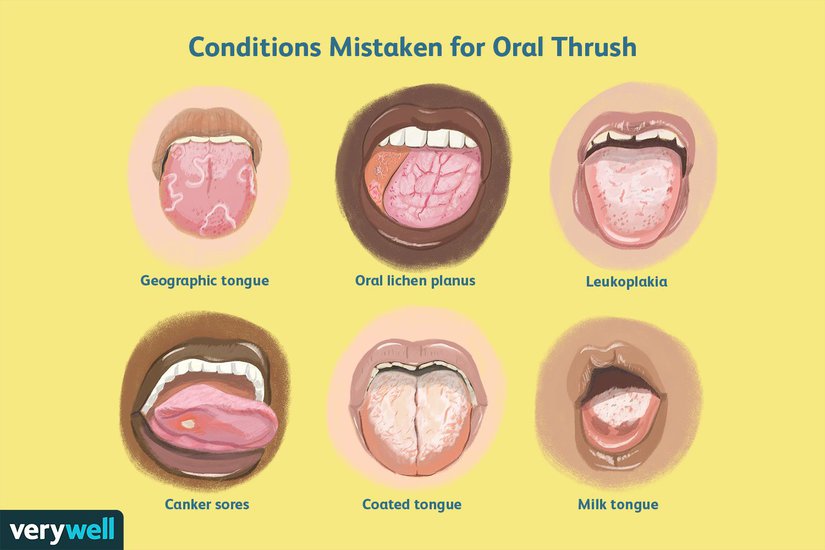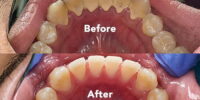White Tongue – Causes, Conditions, And Treatment

Have you ever noticed a white coating on your tongue? It can be alarming, but it’s usually nothing to worry about.
White tongue is a common condition that can be caused by many different things. In this article, we’ll discuss the causes of white tongue, the conditions associated with it, treatments, and how you can prevent it.
We’ll also look at home remedies and complications to be aware of. With the right information, you can learn to recognize and manage white tongue.
What is White Tongue?
Have you ever noticed a strange coating on your tongue? Let’s explore what it could be and how to treat it.
White tongue is a condition in which the surface of your tongue develops a white coating. It’s caused by the buildup of bacteria and debris on your tongue, often from food particles, dead cells, and fungi. The coating can be thick, making it difficult to remove, and can cause an unpleasant taste in your mouth.
In some cases, white tongue can be a sign of an underlying medical condition, such as an infection or vitamin deficiency. It’s important to speak with your doctor if you experience any unusual symptoms or if the white coating does not clear up with simple home remedies.
Treatment for white tongue may include using an antifungal or antibacterial mouthwash, brushing your tongue regularly, and avoiding foods that trigger the condition.
Causes of White Tongue
Wondering what could be causing that strange discoloration in your mouth? Let’s explore the potential causes!
The most common cause of white tongue is poor oral hygiene, which can lead to an overgrowth of bacteria that appears as white patches. This can be caused by not brushing and/or flossing regularly, and can often be an indication of a more serious condition such as gum disease or infection.
Other causes of white tongue include dehydration, smoking, the use of certain medications, and the overgrowth of a yeast called Candida albicans. In some cases, white tongue can be an indication of an underlying medical condition such as diabetes, anemia, or even HIV.
It’s important to note that white tongue can also be caused by eating certain foods, as some may contain acids that can irritate the tongue, such as citrus fruits and spicy dishes.
It’s also important to watch out for any other changes in your mouth or teeth that may be accompanying the white patches. If you’re experiencing any other symptoms, such as soreness, swelling, or bleeding, you should contact your doctor or dentist as soon as possible.
Conditions Associated with White Tongue
If you’re noticing something strange in your mouth, it could be associated with a few different conditions. White tongue can be a symptom of a range of conditions, from a harmless overgrowth of bacteria to a sign of a larger health issue.
Some of the most common conditions associated with white tongue include thrush, leukoplakia, geographic tongue, oral lichen planus, and syphilis. Thrush is a fungal infection caused by an overgrowth of the yeast Candida albicans. It causes a white coating on the tongue that can be scraped off, leaving a reddened surface that may also be painful and sensitive to touch.
Leukoplakia is a condition caused by an overgrowth of cells in the mouth that can lead to white patches on the tongue. Geographic tongue is a condition that causes smooth, red patches on the tongue, with a white border. Oral lichen planus is an autoimmune condition that causes white patches on the tongue, as well as other parts of the mouth. Finally, syphilis can cause white patches or lesions on the tongue.
Treating the condition associated with white tongue will depend on the underlying cause. It’s important to see a doctor or dentist for an accurate diagnosis and treatment plan.
Diagnosing White Tongue
Diagnosing the source of your white tongue can be the key to unlocking the best possible care. Your doctor will likely start with a visual examination of your tongue and ask questions about your health history.
Depending on the results of the examination, your doctor may recommend further tests such as a blood test, a throat swab, or a urine sample. If the diagnosis is still unclear, your doctor may also recommend an endoscopy, where a thin, flexible tube is used to look inside your body.
Once the cause of the white tongue has been identified, your doctor will be able to provide you with the treatment you need to get relief.
Treatments for White Tongue
Knowing the cause of your white tongue is the first step to getting relief, so finding the right treatment is key. Treatment for white tongue depends on what is causing the condition.
If the underlying cause of your white tongue is a bacterial infection, your doctor may prescribe antibiotics. If your white tongue is due to a fungal infection, antifungal medications are the most common treatment. You may also need to practice good oral hygiene, such as brushing your teeth twice a day and flossing, to help prevent the infection from coming back.
In some cases, other treatments may be necessary. For example, if your white tongue is caused by dehydration, you’ll likely need to drink more fluids to keep your body hydrated. If your white tongue is the result of a vitamin deficiency, you may need to make dietary changes to get more of the missing nutrient. Your doctor may also recommend supplements to help restore levels of missing vitamins and minerals.
Home Remedies for White Tongue
If you’re looking for a more natural approach to relieving your white tongue, there are some home remedies that may help. The following are some of the most popular home remedies for white tongue:
- Rinse your mouth with a mixture of hydrogen peroxide and water.
- Use a soft bristled toothbrush to brush the tongue gently.
- Gargle with a solution of salt and water.
- Drink plenty of fluids to help flush out toxins.
- Consume probiotic foods like yogurt to promote healthy bacteria growth.
Other home remedies to reduce white tongue include avoiding processed foods, drinking green tea, and consuming foods high in vitamin C.
All of these home remedies are simple and cost-effective, but it’s important to remember that they may not be as effective as medical treatments. It’s always best to consult a doctor before trying any home remedy.
Complications of White Tongue
Although white tongue is often harmless, it can be a sign of underlying health conditions that can have serious complications if left untreated. These conditions can lead to dehydration, infections, and malnutrition, which can cause organ damage if left unchecked.
In rare cases, white tongue can also be a sign of more serious medical conditions, such as oral cancer. If left untreated, these conditions can become life-threatening. It’s important to monitor any changes in your white tongue and to contact your doctor immediately if you experience any significant changes.
It’s important to get regular checkups with your dentist as they can help to identify any potential health risks. Treatment options for white tongue vary depending on the underlying cause but may include antibiotics, antifungal medications, or lifestyle changes.
Preventing White Tongue
Taking care of your oral hygiene is the best way to prevent issues like white tongue. Brush your teeth twice a day, floss regularly, and use mouthwash.
Regular visits to the dentist for cleanings and checkups can help detect potential problems before they become serious.
Eating a balanced diet, cutting back on smoking and alcohol, and drinking plenty of water can all help to reduce the risk of developing white tongue.
Limiting your intake of sugary and acidic foods and drinks can also help, as they can contribute to the development of white tongue.
Conclusion
You may have noticed a white coating on your tongue that can be alarming. White tongue is a common condition that is often harmless, but there are certain causes and conditions that could be responsible.
It’s important to have it checked out by your doctor to get a proper diagnosis and treatment. With the right diagnosis and treatment, you can get your white tongue under control and prevent it from coming back.
Remember to practice good oral hygiene and see your dentist for regular checkups to help reduce the risk of white tongue and other oral health issues.









